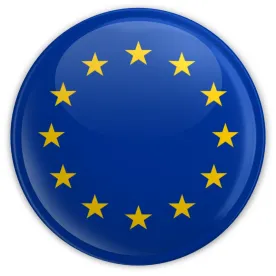The protection afforded to trade secrets is disparate across the EU. In order to protect trade secrets as potential drivers for economic growth and jobs and to create a level-playing field within Europe, the European Parliament has now approved the Trade Secrets Directive.
This Directive aims to provide a minimum, uniform level of protection in respect of undisclosed know-how and business information (trade secrets) against unlawful acquisition, use and disclosure. The intent is for this protection work in parallel with the existing uniform EU law protecting intellectual property.
The Directive provides a minimum standard framework, with common definitions, procedures and sanctions. Higher levels of protection are permitted. Accordingly, countries which already enjoy higher levels of protection (e.g. UK and Germany) will not necessarily need to take any steps to implement the requirements. Nonetheless, decisions of the ECJ interpreting the Directive may well have a bearing on the existing national law of Member States in relation to trade secrets.
The following is a list of the notable aspects of the Directive:
Recitals 27(a) – Post termination restrictions
There are no requirements to harmonise the laws in relation to post-termination restrictions, including non-compete clauses.
Article 1.2a – Subject matter and scope
The Directive does not seek to limit an employee’s use of their experience and skills honestly acquired through the normal course of their employment. This means that what amounts to a trade secret must be above and beyond something that is mere skill and experience. Additional restrictions cannot be put on employees to reduce their mobility because of the Directive.
Article 2 – Definition of “trade secret”
Under the Directive, a “trade secret” is information that (i) “is secret in the sense that it is not….generally known among or readily accessible to persons within the circles that normally deal with the kind of information in question; (ii) has “commercial value because it is secret”; and (iii) “has been subject to reasonable steps under the circumstances, by the person in control of the information, to keep it secret” (emphasis added).
This broad definition reflects the wording of article 39(2) of international TRIPS Agreement (Trade-Related Aspects of Intellectual Property Rights), an agreement administered by the World Trade Organisation. It is also similar to the definition of trade secrets under the U.S. Uniform Trade Secrets Act.
This will be a definition that is ripe for judicial interpretation by the ECJ, especially those parts emphasised in italics.
Article 4(b) – Exception for whistleblowers
One exception to the general prohibition against disclosing trade secrets is for whistleblowers. Article 4(b) explicitly permits the disclosure of trade secrets by whistleblowers, where such disclosure involves raising “misconduct, wrongdoing or illegal activity, provided that the [whistleblower] acted for the purpose of protecting the general public interest”. We anticipate that the scope of this exception will be an area of controversy.
Article 9 – Provisional and precautionary measures
This gives judicial authorities the power to take certain interim actions and precautionary measures against an alleged infringer before a decision has been made. These would include: the cessation or prohibition of the use or disclosure of the trade secret on a provisional basis; a prohibition on producing, offering or placing on the market or using infringing goods or importing or exporting infringing goods; and seizing or delivering up suspected infringing goods. The Article is silent on other interim measures that judicial authorities may have the power to do e.g. search orders, freezing orders and pre-action disclosure.
Article 11 – Injunction and corrective measures
Once the case has been decided, the Directive gives judicial authorities to grant final remedies in addition to or as an alternative to an award of damages, such as orders prohibiting the use or disclosure of the trade secret; prohibiting the production, offering or placing on the market or use of the infringing goods, or importing or exporting or storing infringing goods; adopting appropriate corrective measures with regard to the infringing goods; and destroying or delivering up of relevant documents, objects, materials, electronic files. These remedies will be familiar to UK lawyers.
Article 13 – Damages
This gives judicial authorities the power to award damages for misuse of trade secrets. Interestingly, the legislation expressly provides Member States with the option of limiting the liability for damages of employees where the misuse was unintentional.
Next Steps
The European Parliament has formally approved the Directive. It will now need to be endorsed by the Council of the European Union, which we expect to occur in May. Member States will then have two years to ensure that the national law is in accordance with the Directive, or implement it.






 />i
/>i

